In 2019, the Millstein Center launched its Counter-Narratives Project, which focuses on alternative theories to the conventional shareholder primacy paradigm—the theory that shareholder interests should be prioritized above the interests of all other stakeholders (including debtholders, employees, customers, suppliers, the environment, the community, and the corporation itself). While many agree that one economic purpose of a corporation is to maximize value for all of its stakeholders in the aggregate over a long-term time horizon, this view holds that shareholders’ interests must always take precedence.
The alternative theories, or “counter-narratives,” are critical of shareholder primacy and argue that such a view encourages “short-termist” actors and behaviors which have contributed to economic malaise and a maldistribution of wealth. These counter-narratives propose various methods of balancing the interests of all stakeholders and measuring the success of a corporation through means other than simple shareholder wealth maximization.
The complex task of mediating the interests of intra-firm constituencies is complicated further by the fact that the role and structure of corporate ownership is being reshaped in a manner not seen in over a century in two significant ways. First, ownership of public companies is increasingly concentrated in the hands of a specialized group of institutional investors and asset managers; in turn, an increasing share of such holdings are managed “passively” to track the performance of broad-gauged market indices. Second, an increasingly large share of innovative enterprise is being funded by private capital markets rather than public markets, and capital markets are evolving in ways that facilitate such private ownership choices. (The Millstein Center is exploring these shifts specifically through our Future of the Corporation Project.)
As ownership changes, the governance sub-institutions that serve the broad objective of maximizing value will necessarily change as well. Debates that have traditionally been addressed through an increasingly strained shareholder-based model now fall even more woefully short of the task of addressing pressing contemporary questions, such as:
- What is the responsible way for the asset managers and the other institutional investors to exercise their rights as shareholders alongside other shareholders?
- To what extent do their interests in diversified portfolios conflict with firm-level value maximization?
- Have these new ownership structures exacerbated conflicts of interest with other firm-level constituencies (such as customers, creditors and employees)?
- What is the appropriate role of governance rights arbitrageurs, like hedge funds, or information intermediaries, like proxy advisors, in this new ecology of ownership and control?
- Does “governance” that may be optimal from a shareholder point of view, or even an overall wealth point of view, raise serious questions of financial inclusion and distributional fairness? If so, should these questions be addressed at the level of the corporation?
Image Carousel with 28 slides
A carousel is a rotating set of images. Use the previous and next buttons to change the displayed slide
-
Slide 1: Jeff Gordon presenting at conference
-
Slide 2: Attendees at conference
-
Slide 3: Attendees at conference
-
Slide 4: Attendees at conference
-
Slide 5: Jeff Gordon and Merritt Fox
-
Slide 6: Attendees at conference
-
Slide 7: Attendees at conference
-
Slide 8: Kate Judge moderating conference panel
-
Slide 9: Robert Jackson presenting at conference
-
Slide 10: Robert Jackson presenting at conference
-
Slide 11: Robert Jackson presenting at conference
-
Slide 12: Robert Jackson presenting at conference
-
Slide 13: Robert Jackson presenting at conference
-
Slide 14: Attendees at conference
-
Slide 15: Conference panel
-
Slide 16: Attendees at conference
-
Slide 17: Robert Jackson presenting at conference
-
Slide 18: Attendees at conference
-
Slide 19: Attendees at conference
-
Slide 20: Attendees at conference
-
Slide 21: Attendees at conference
-
Slide 22: Colin Mayer presenting at conference
-
Slide 23: Colin Mayer presenting at conference
-
Slide 24: Ron Gilson
-
Slide 25: Martin Lipton presenting at conference
-
Slide 26: Attendees at conference
-
Slide 27: Jeff Gordon presenting at conference
-
Slide 28: Martin Lipton and Mats Isaksson
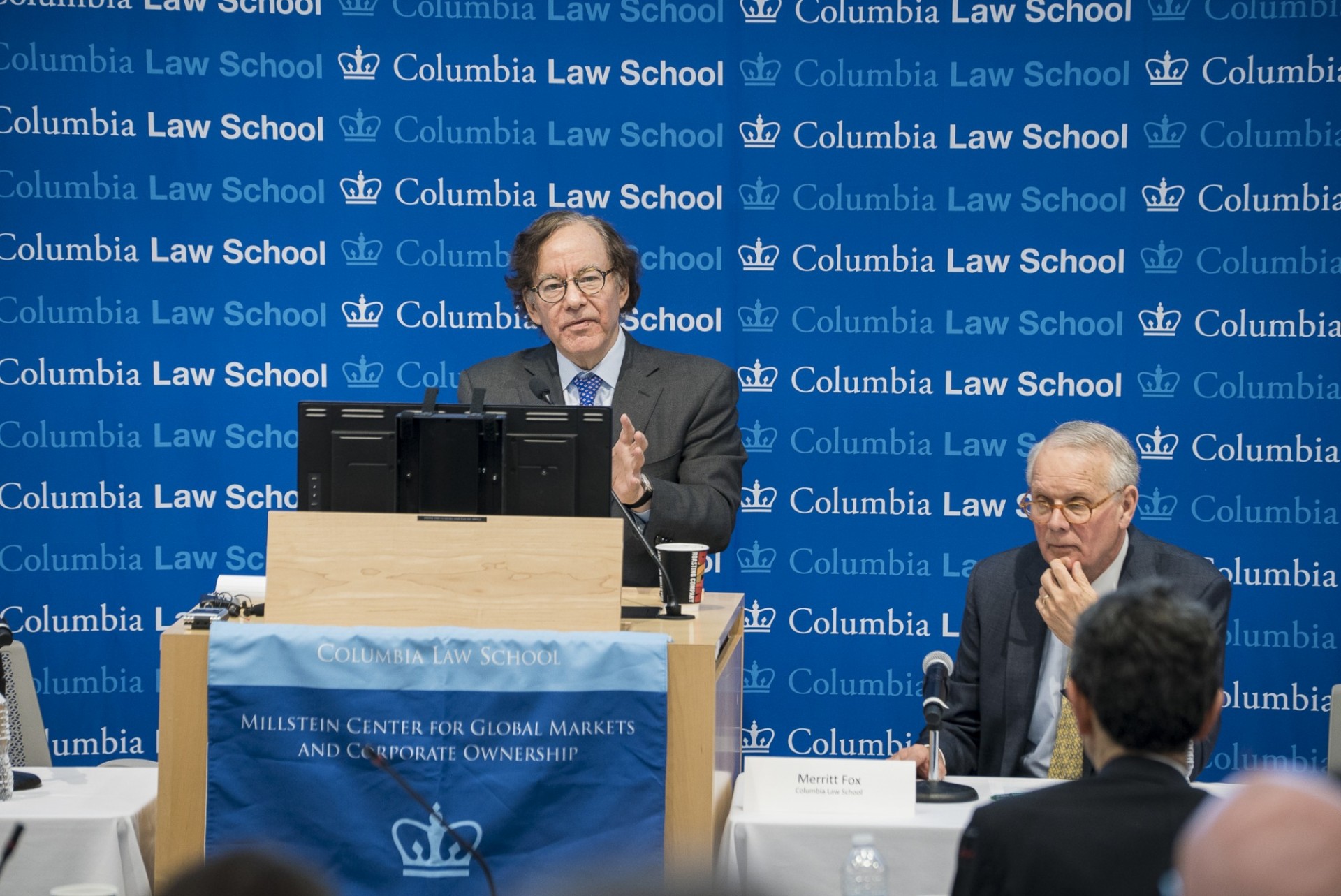
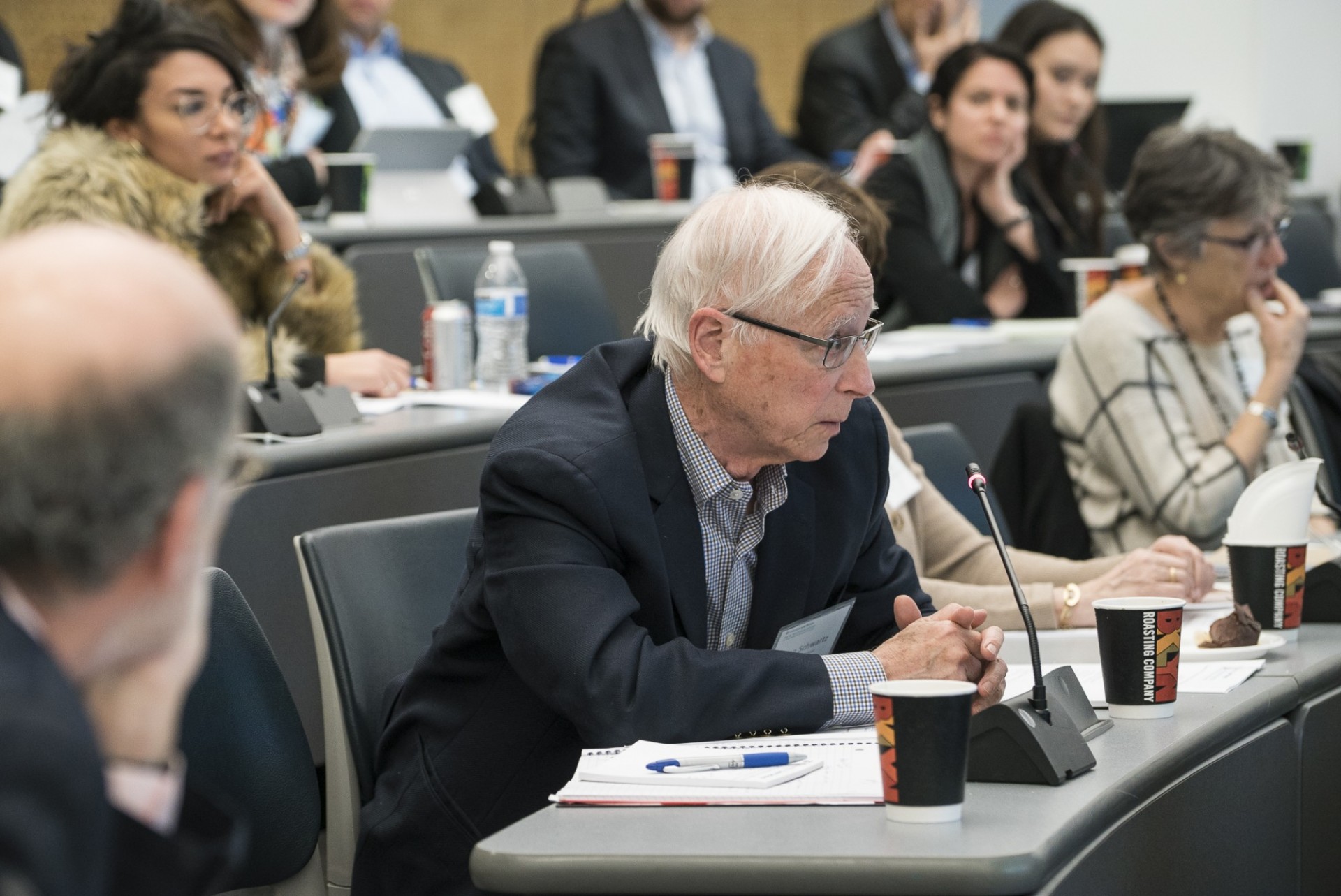
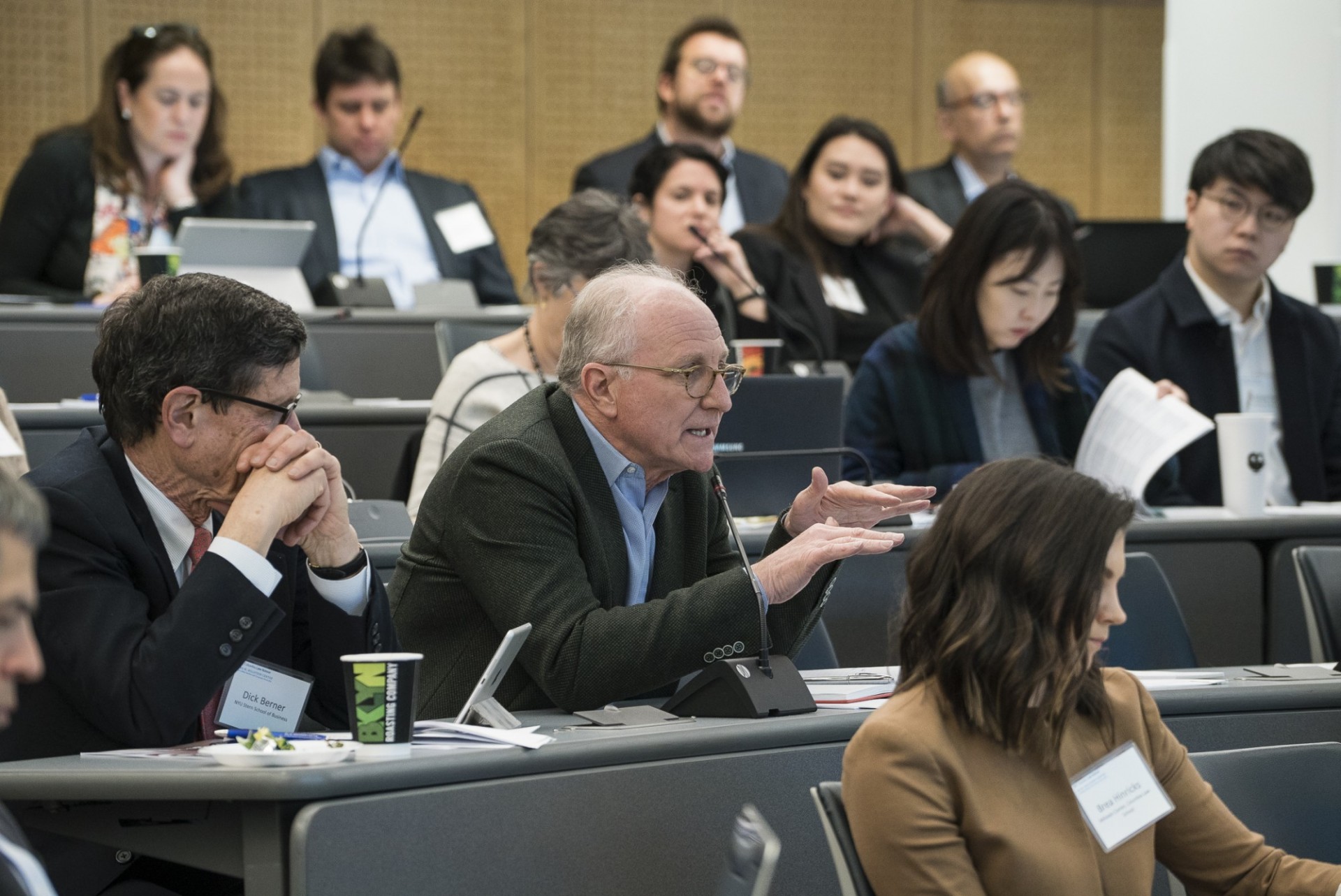
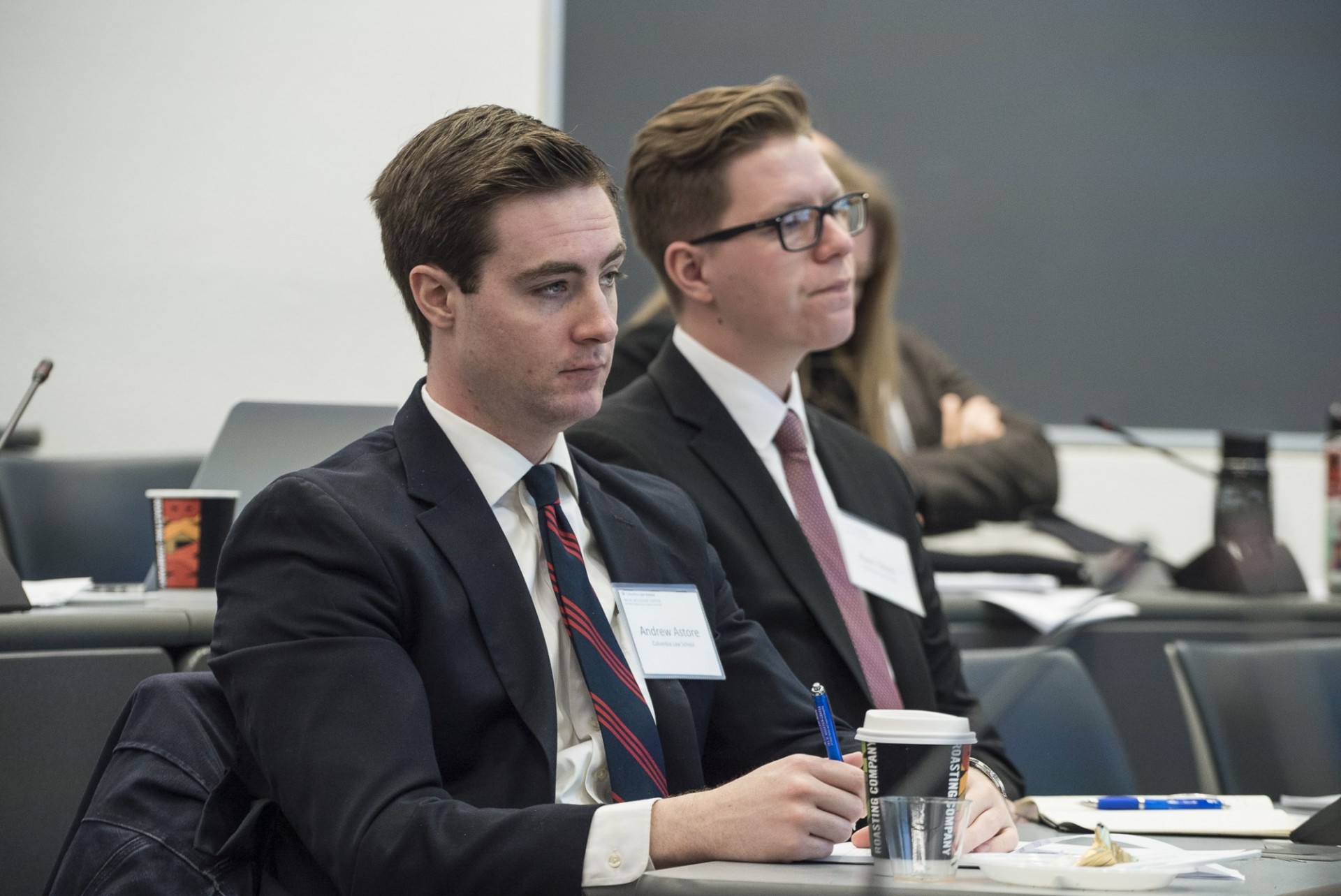
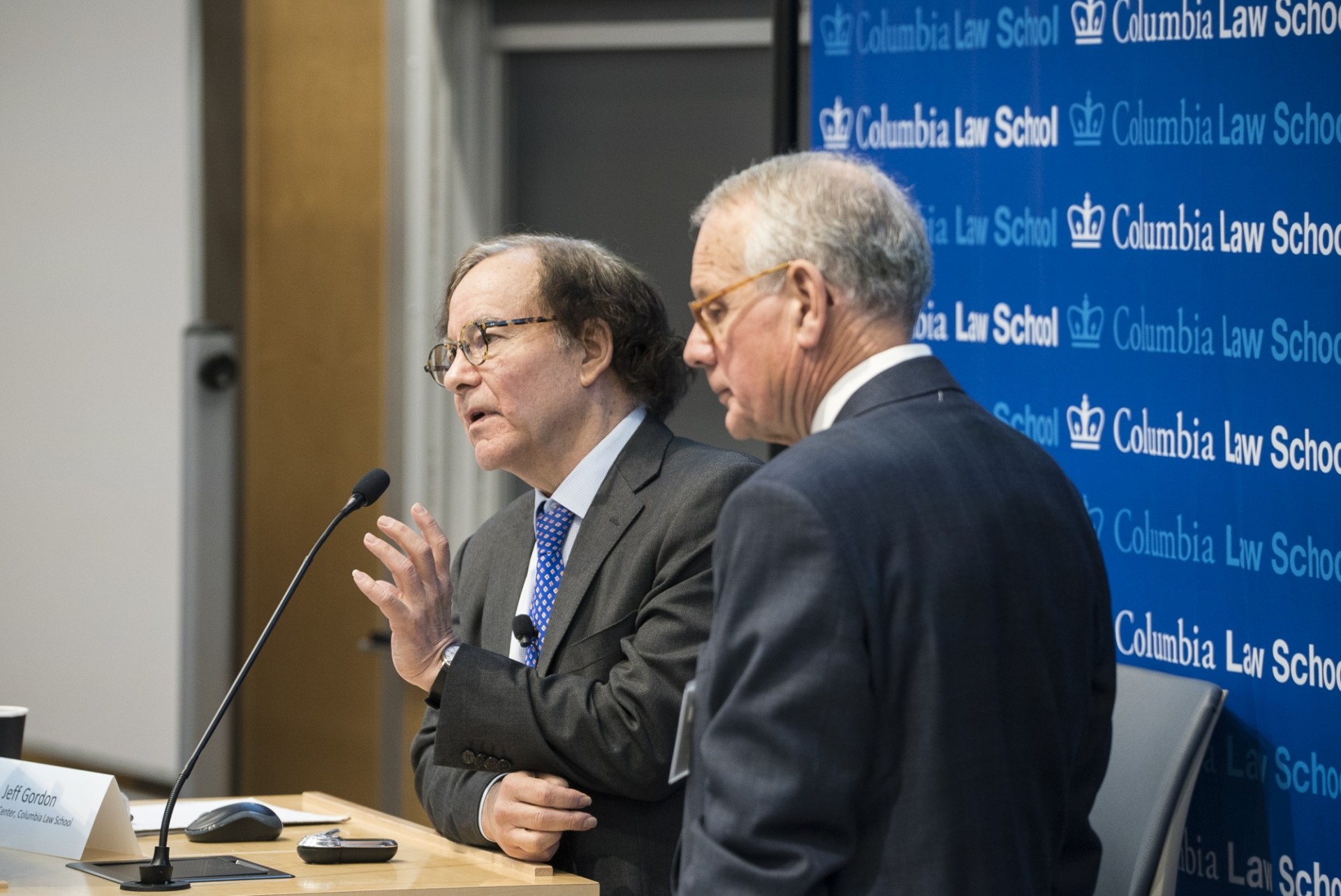


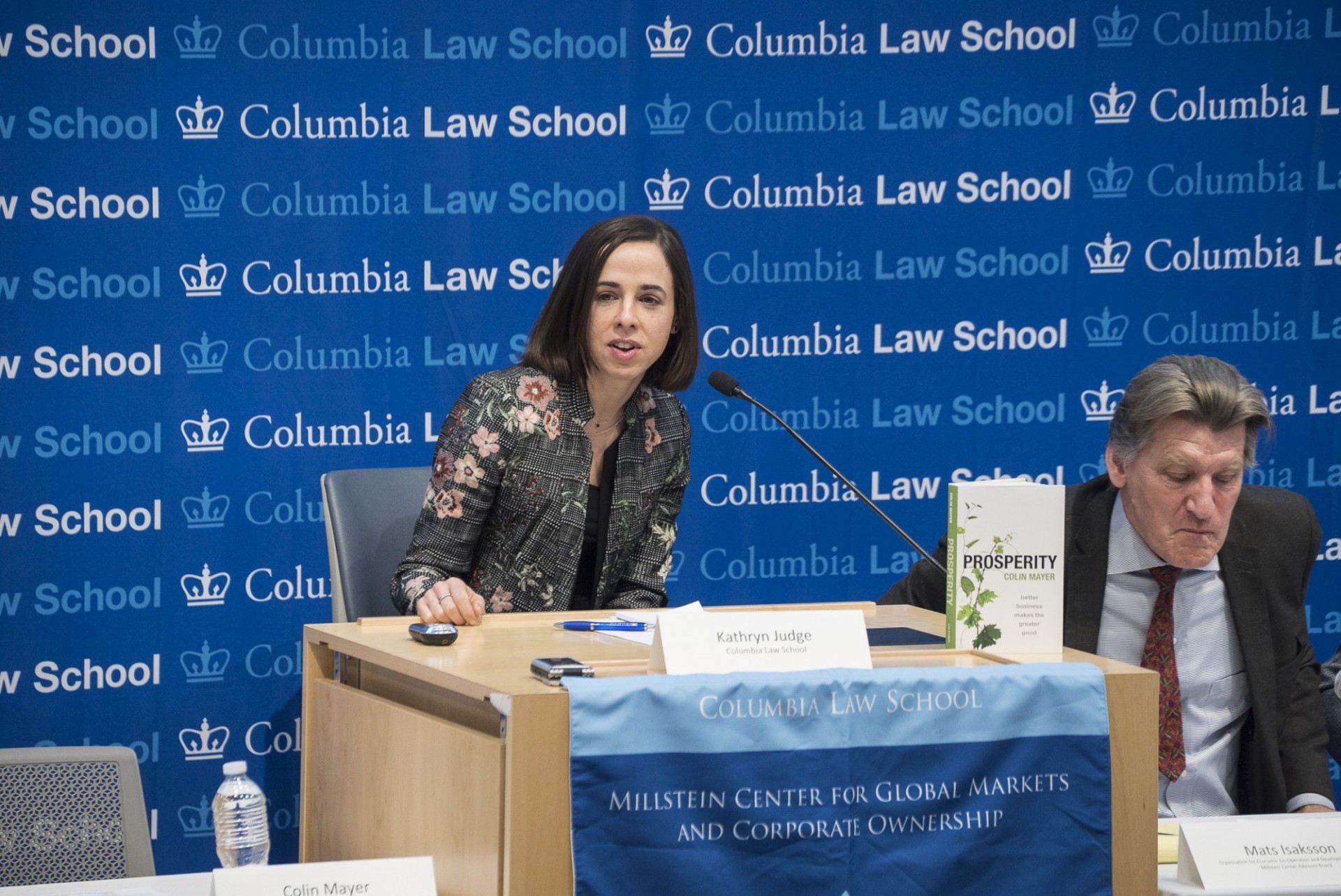
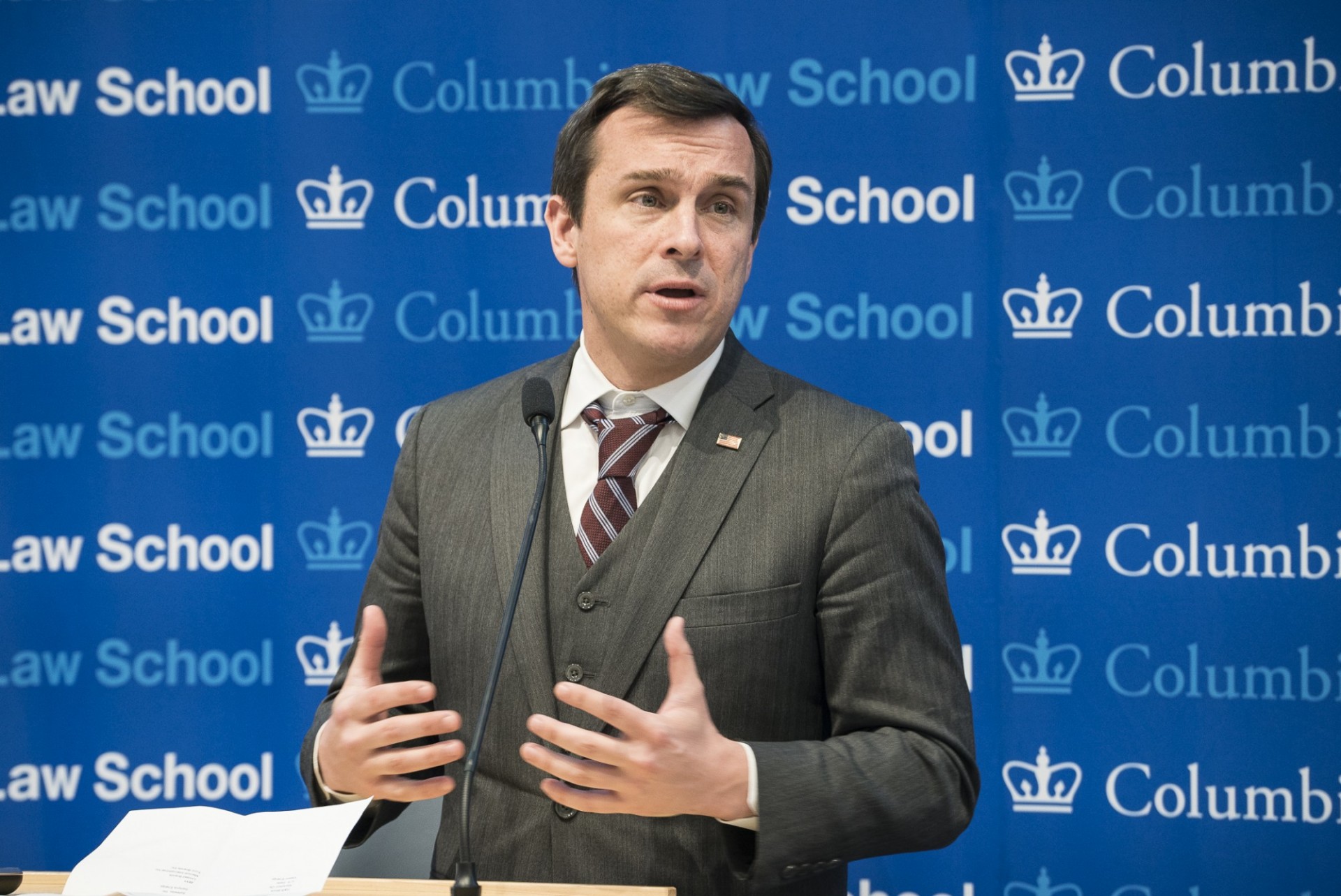
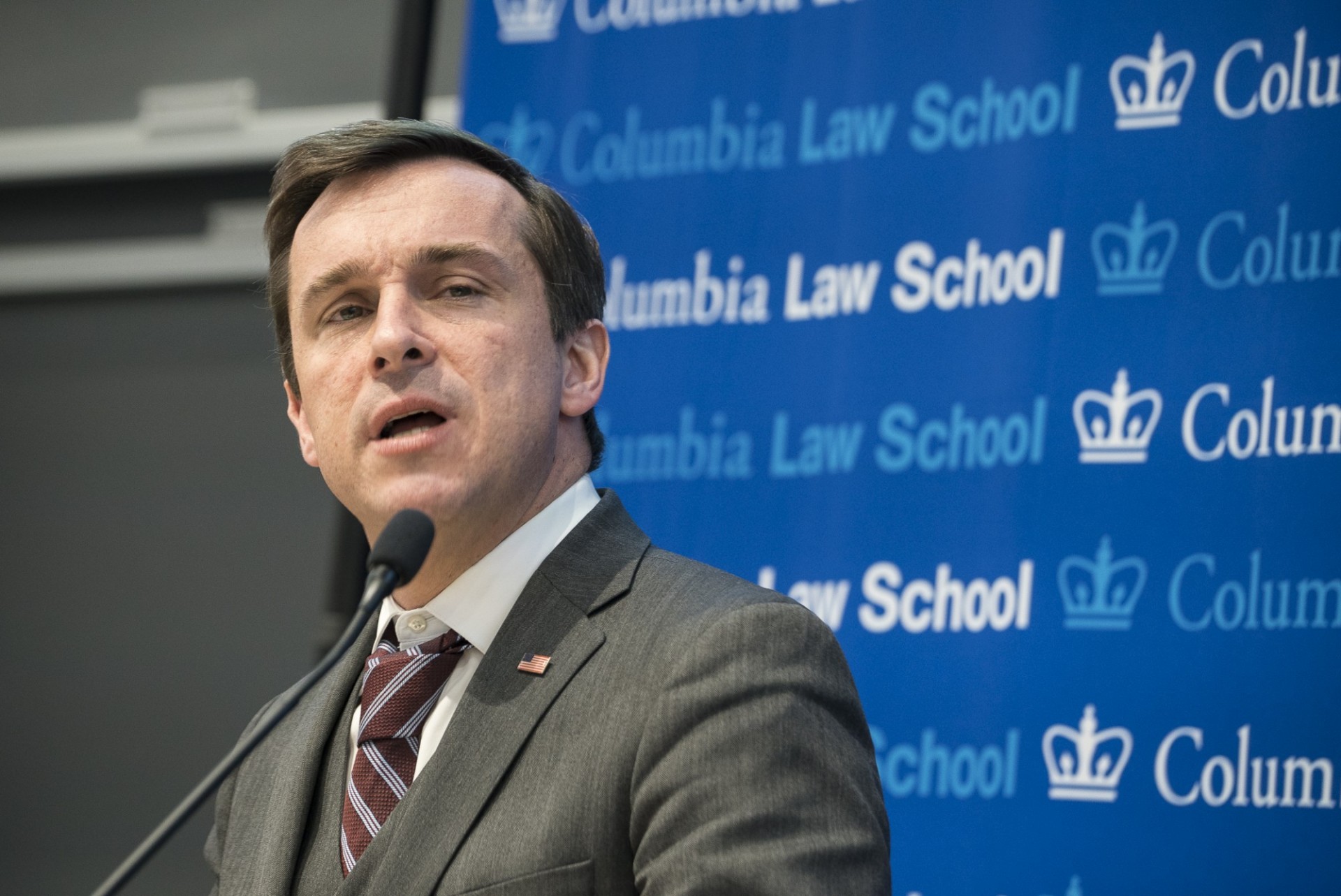
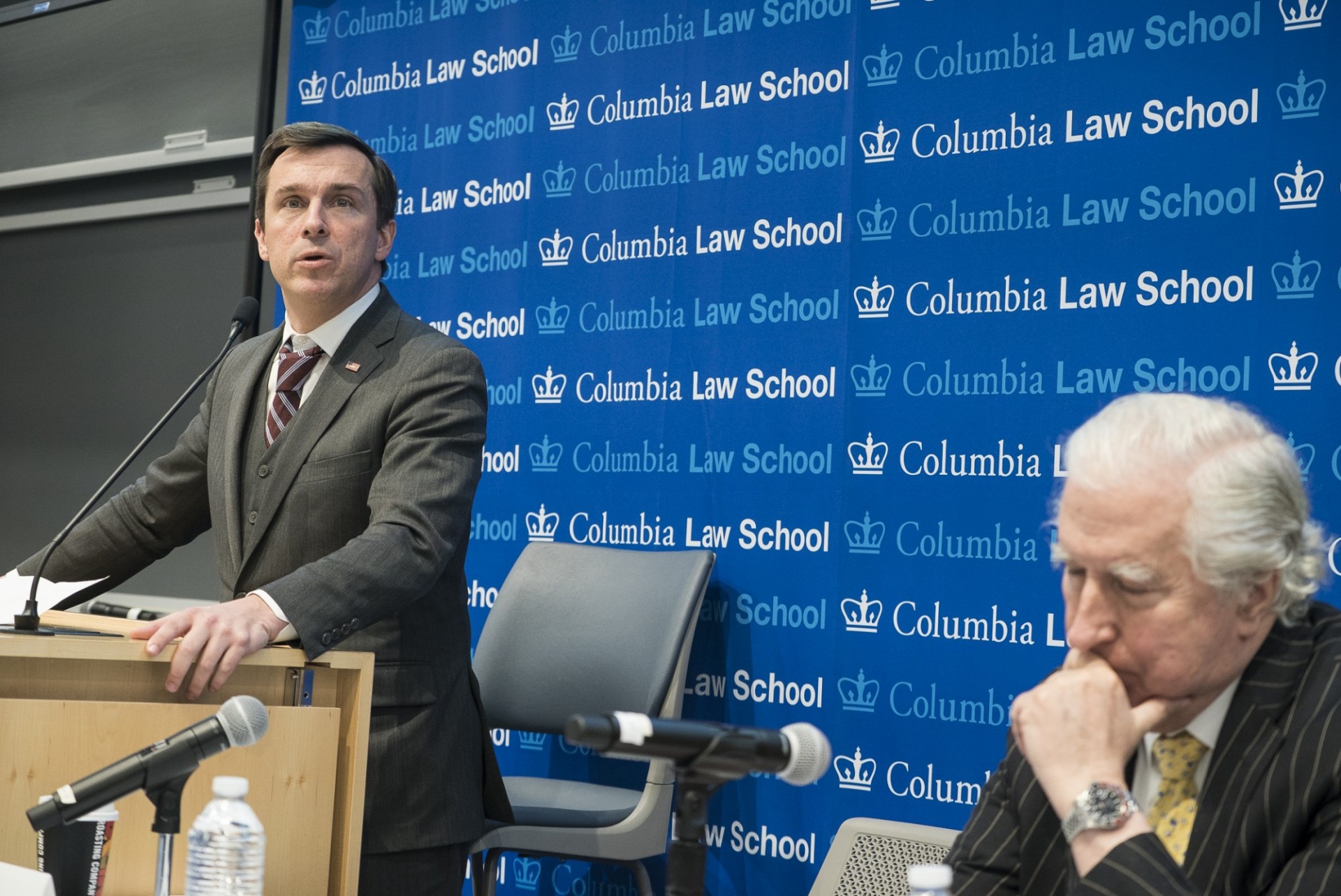
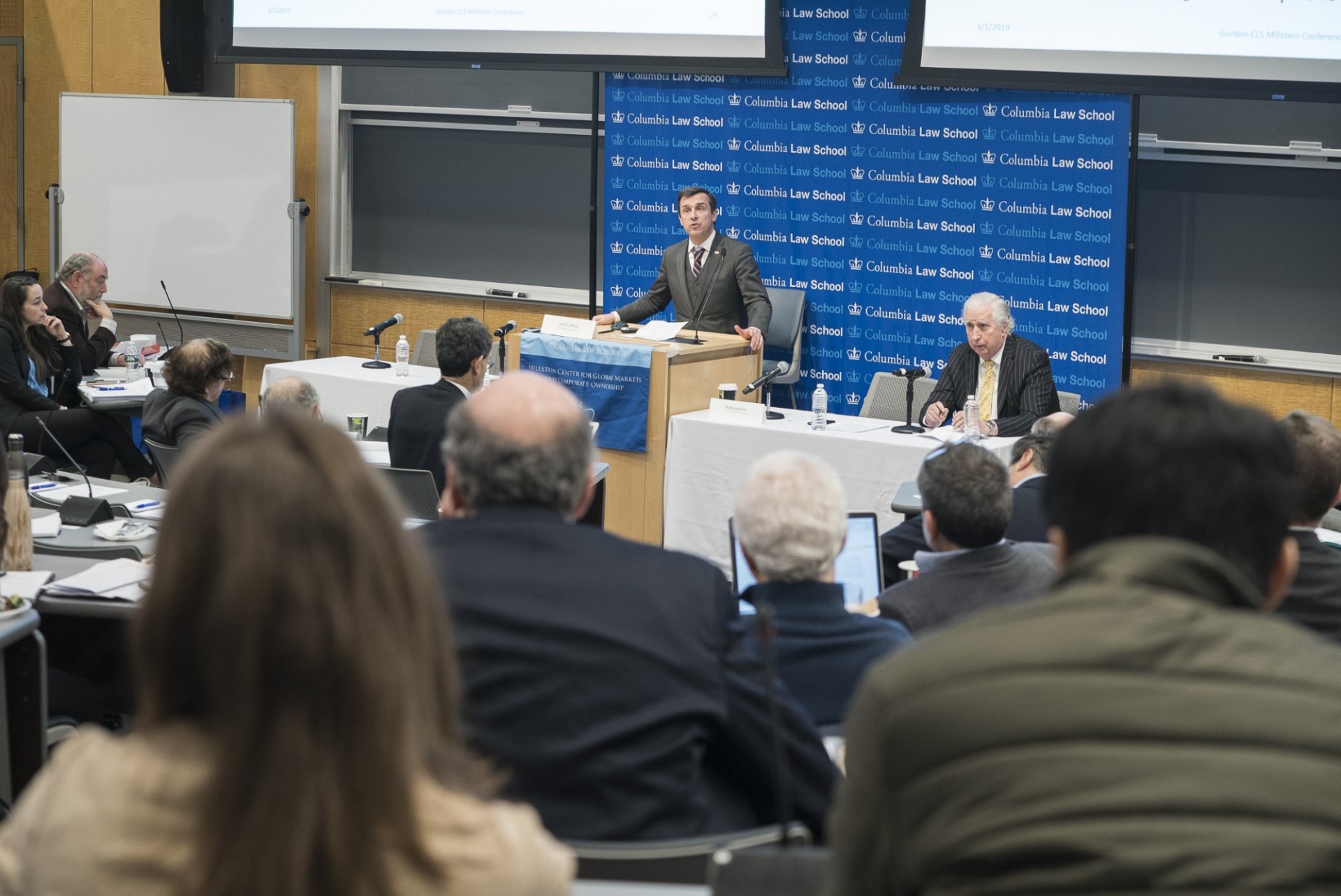
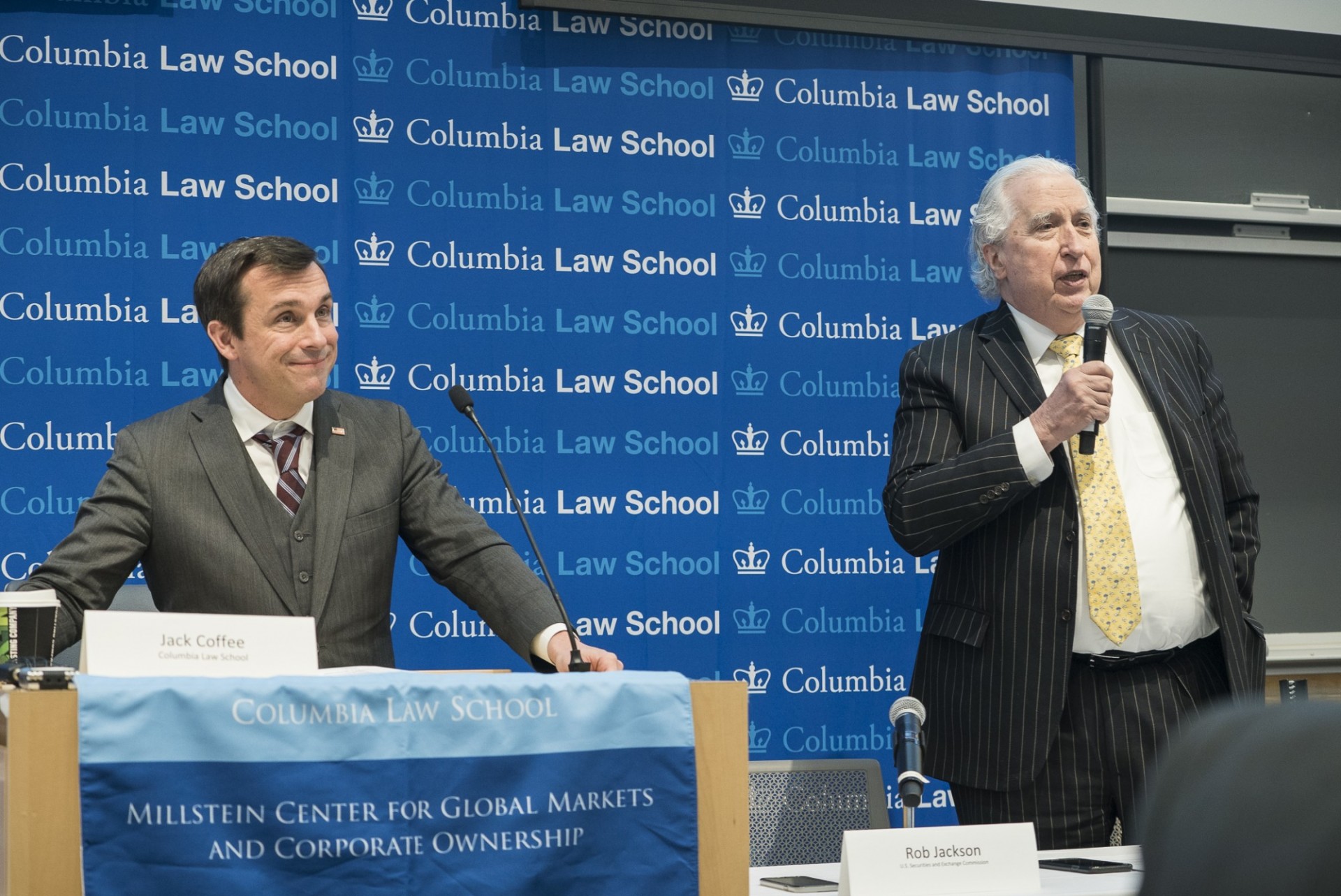
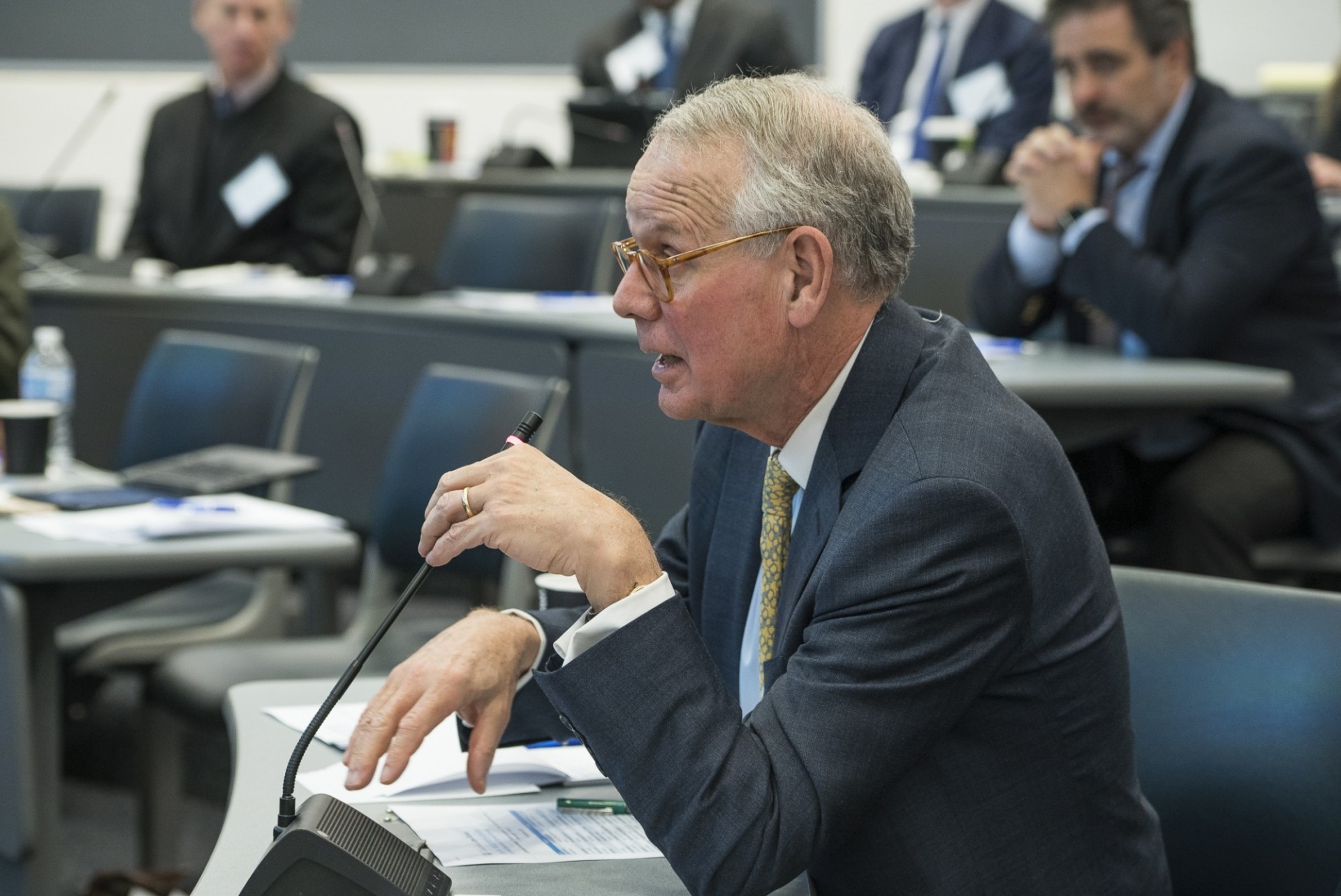
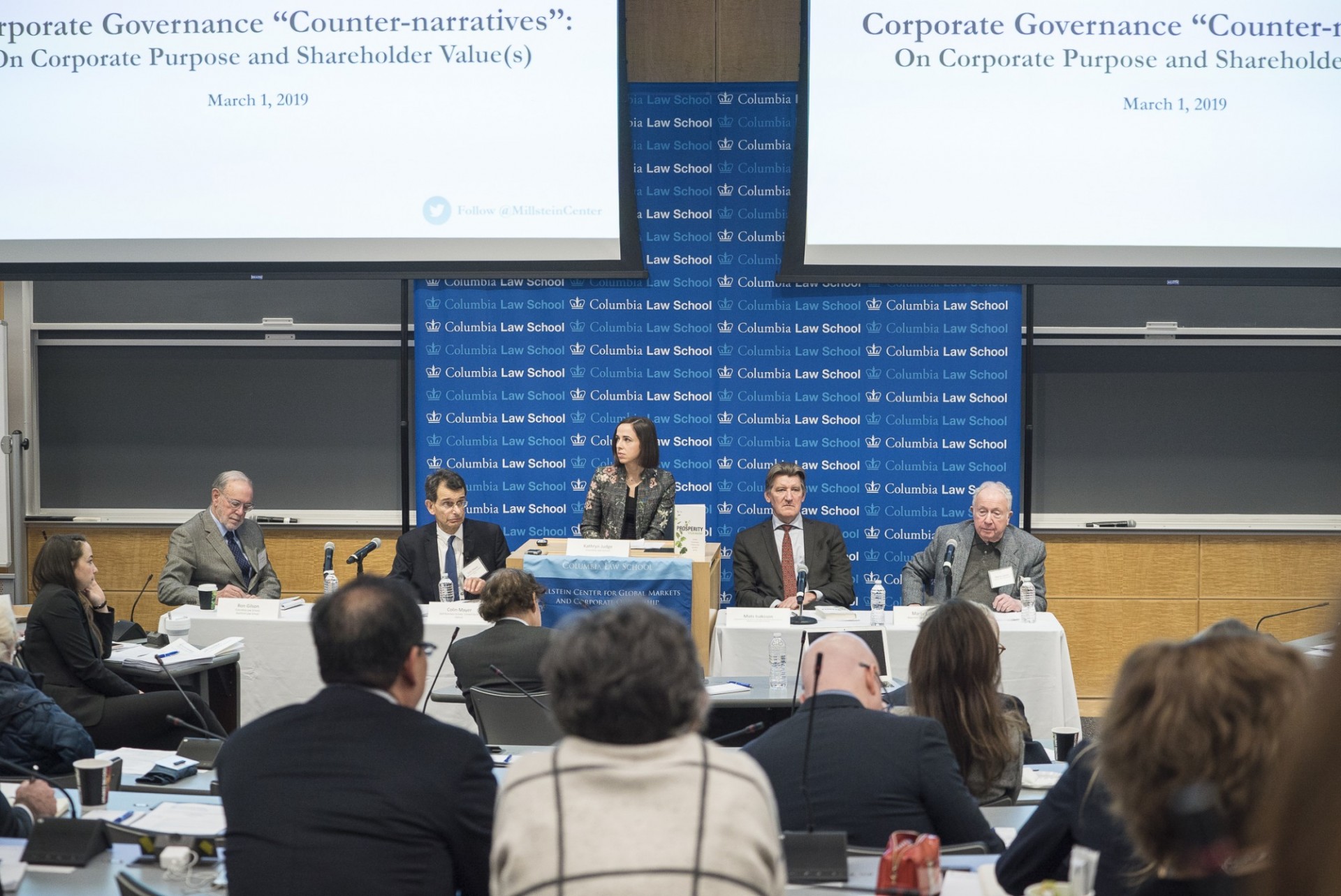
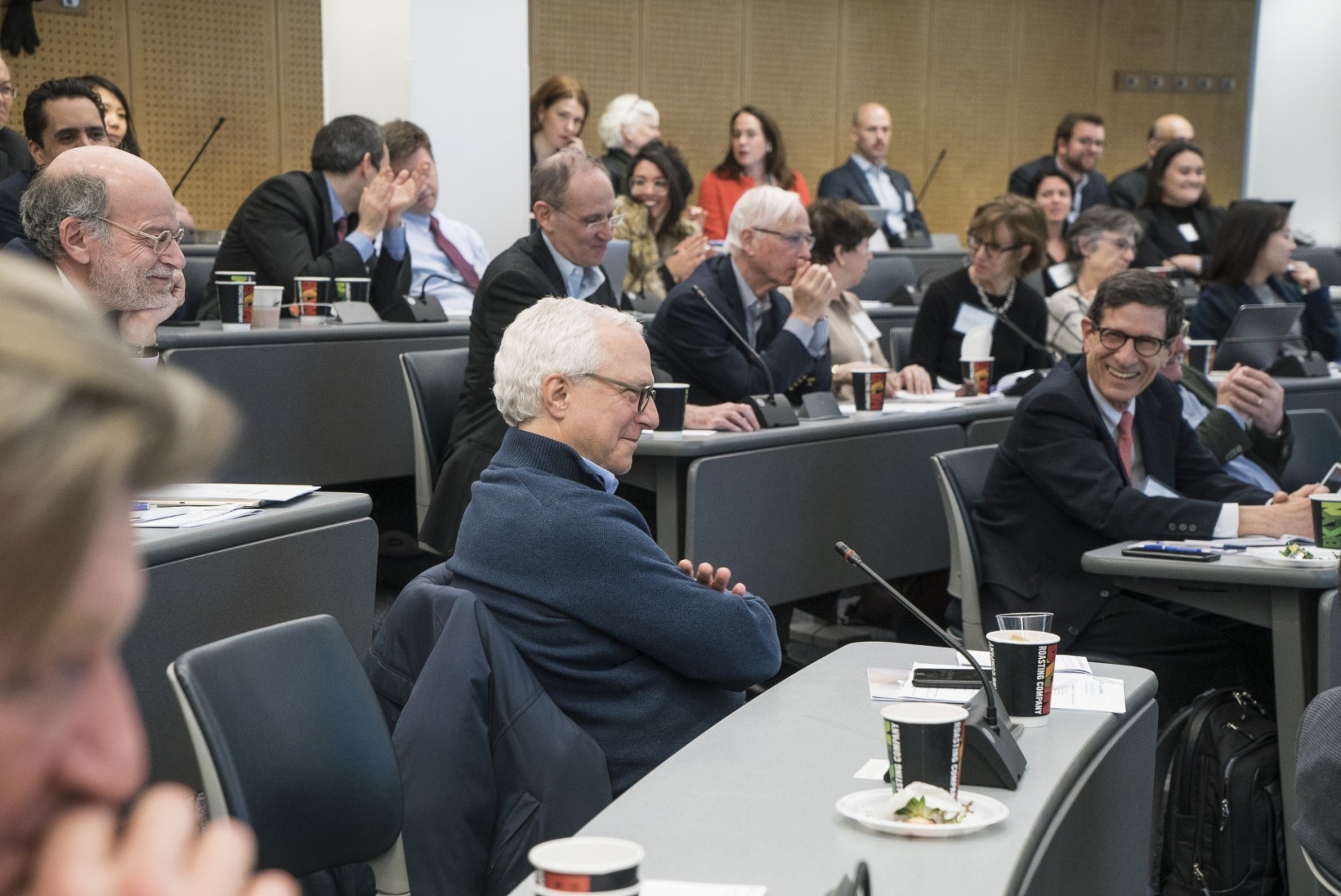
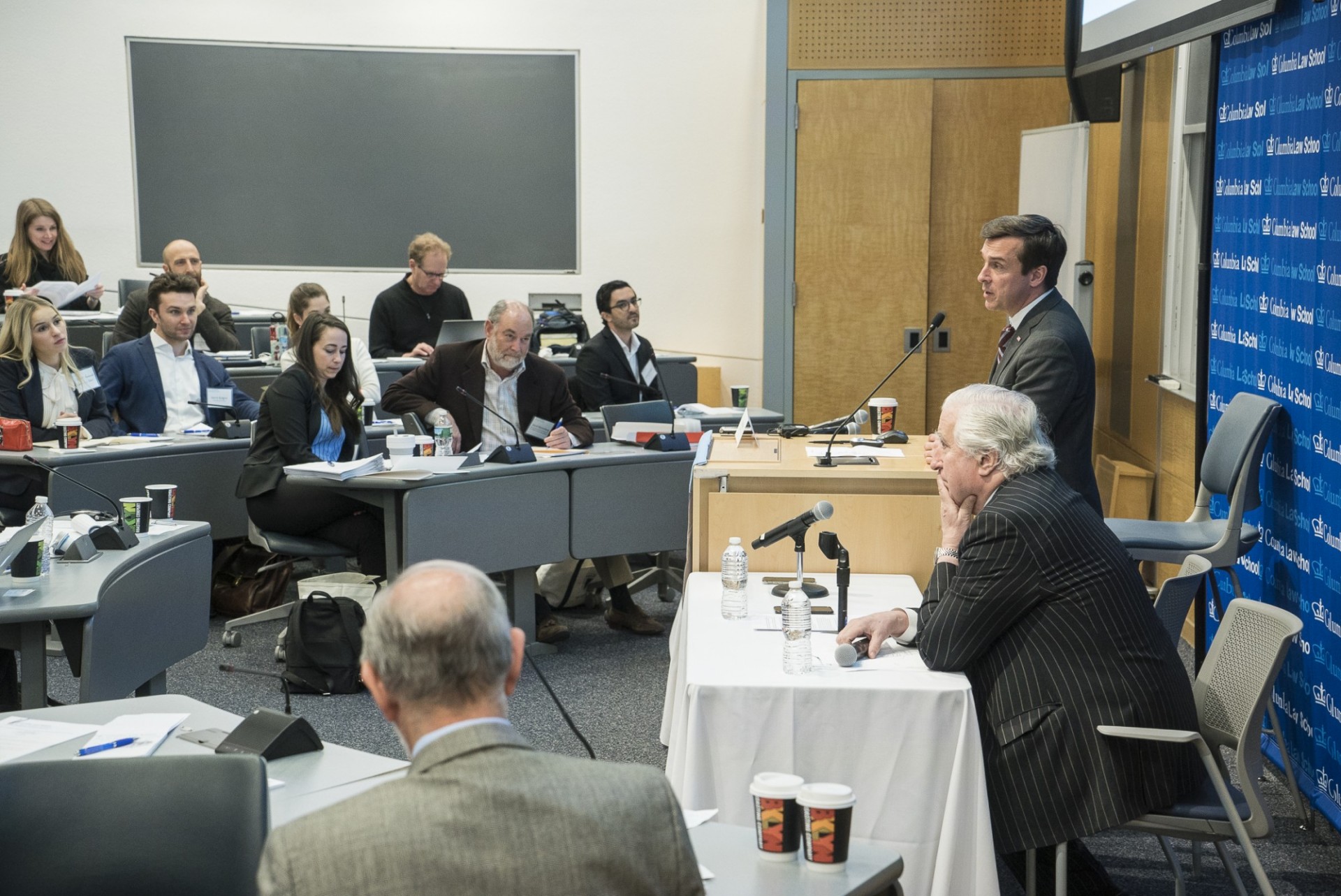
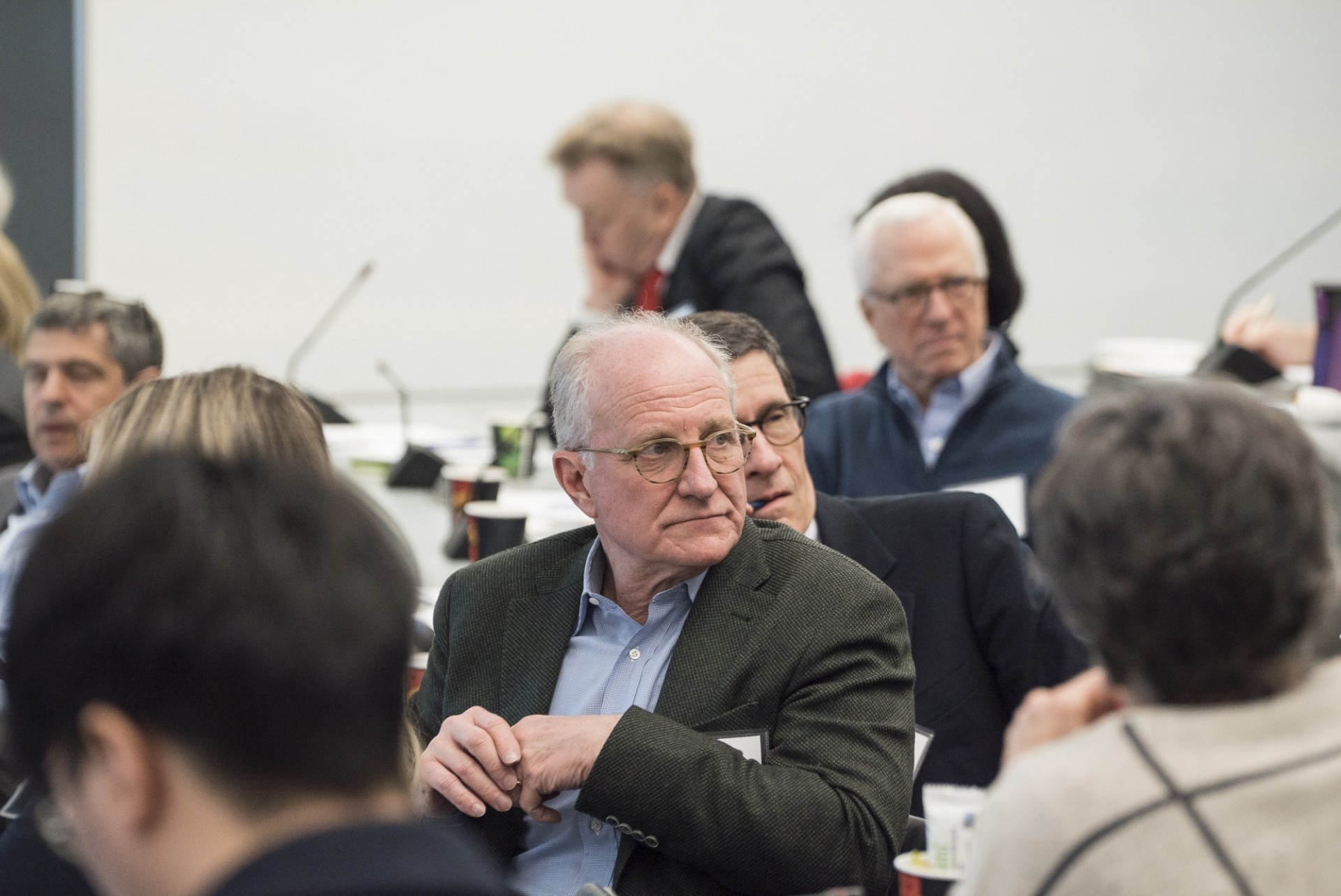
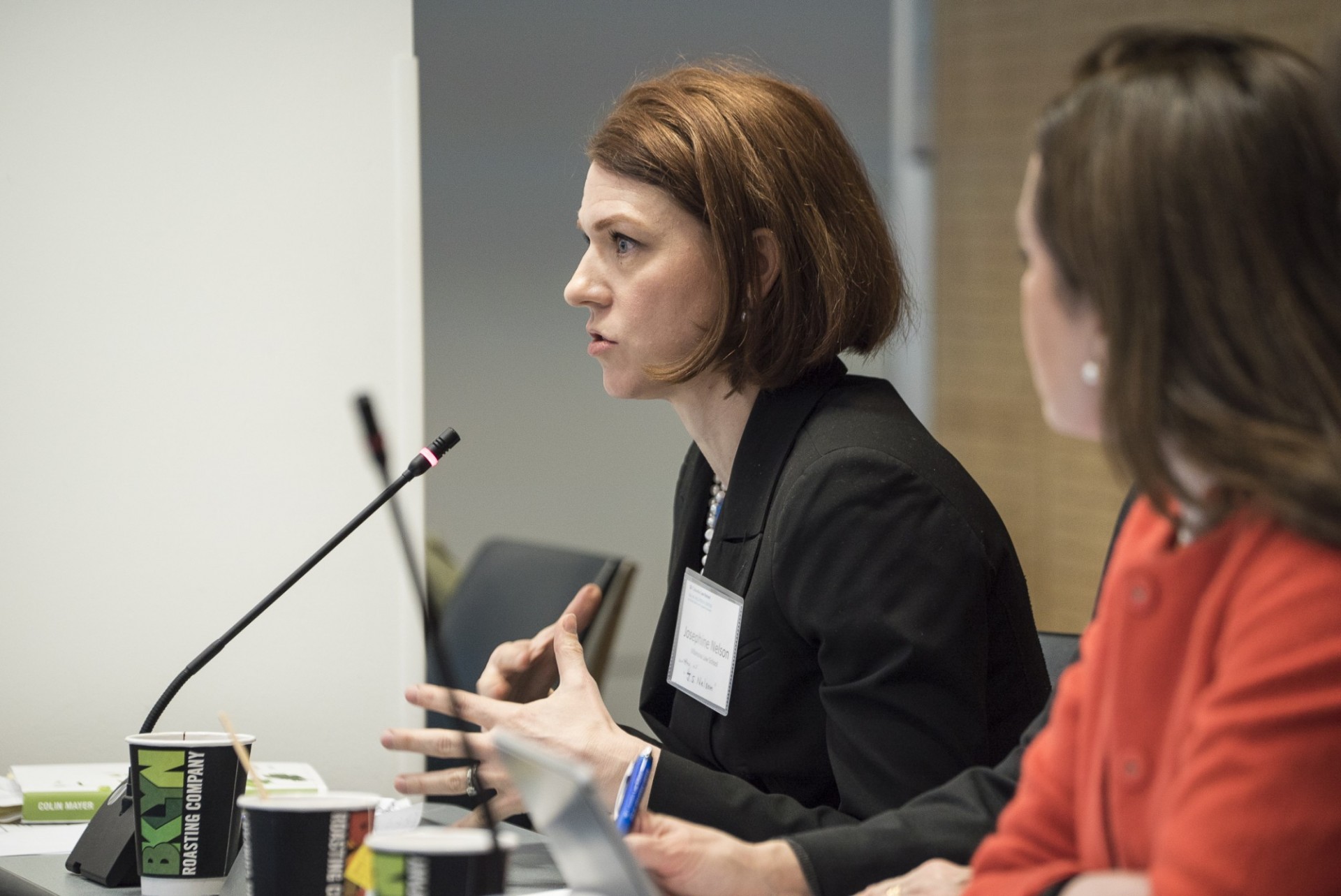

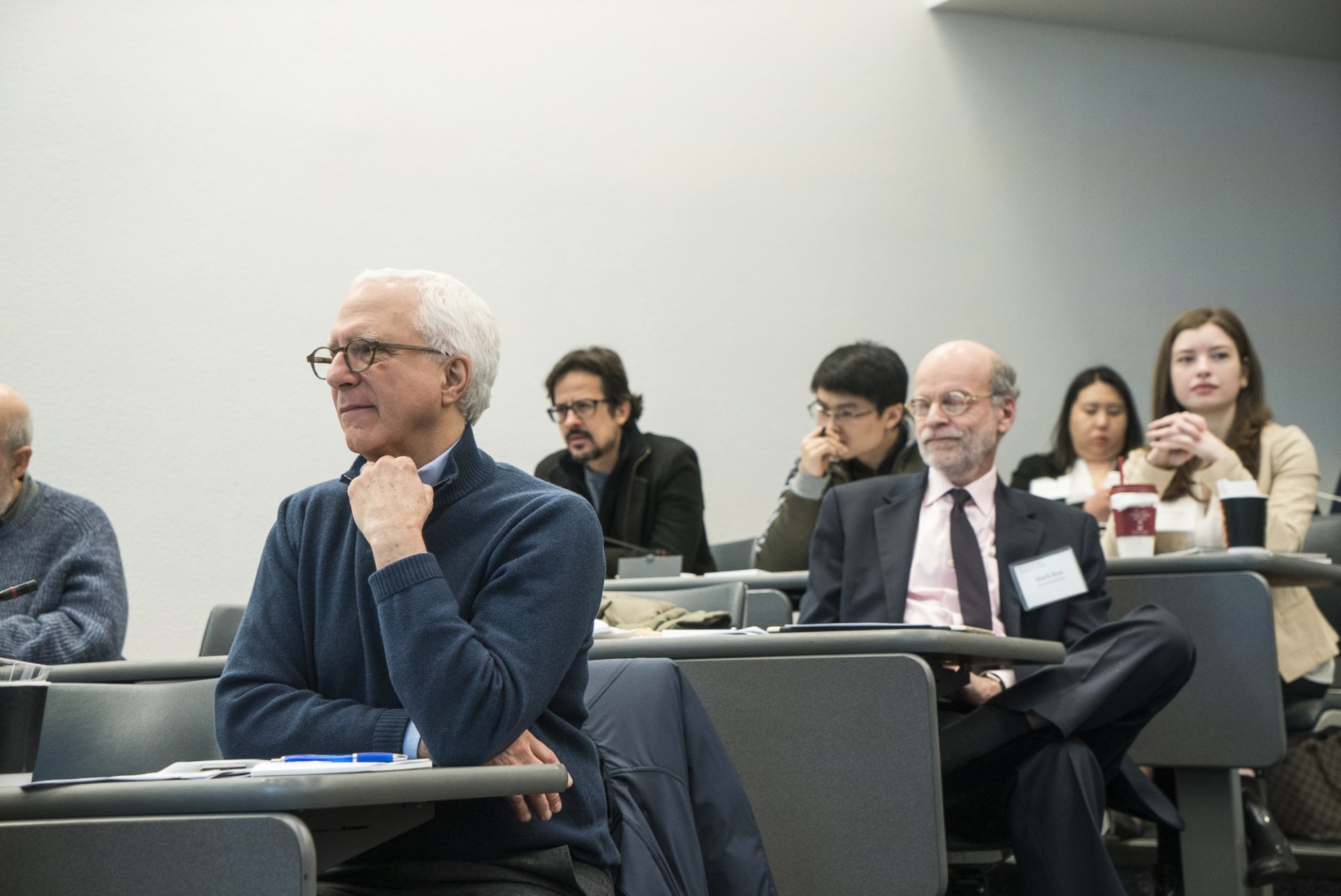
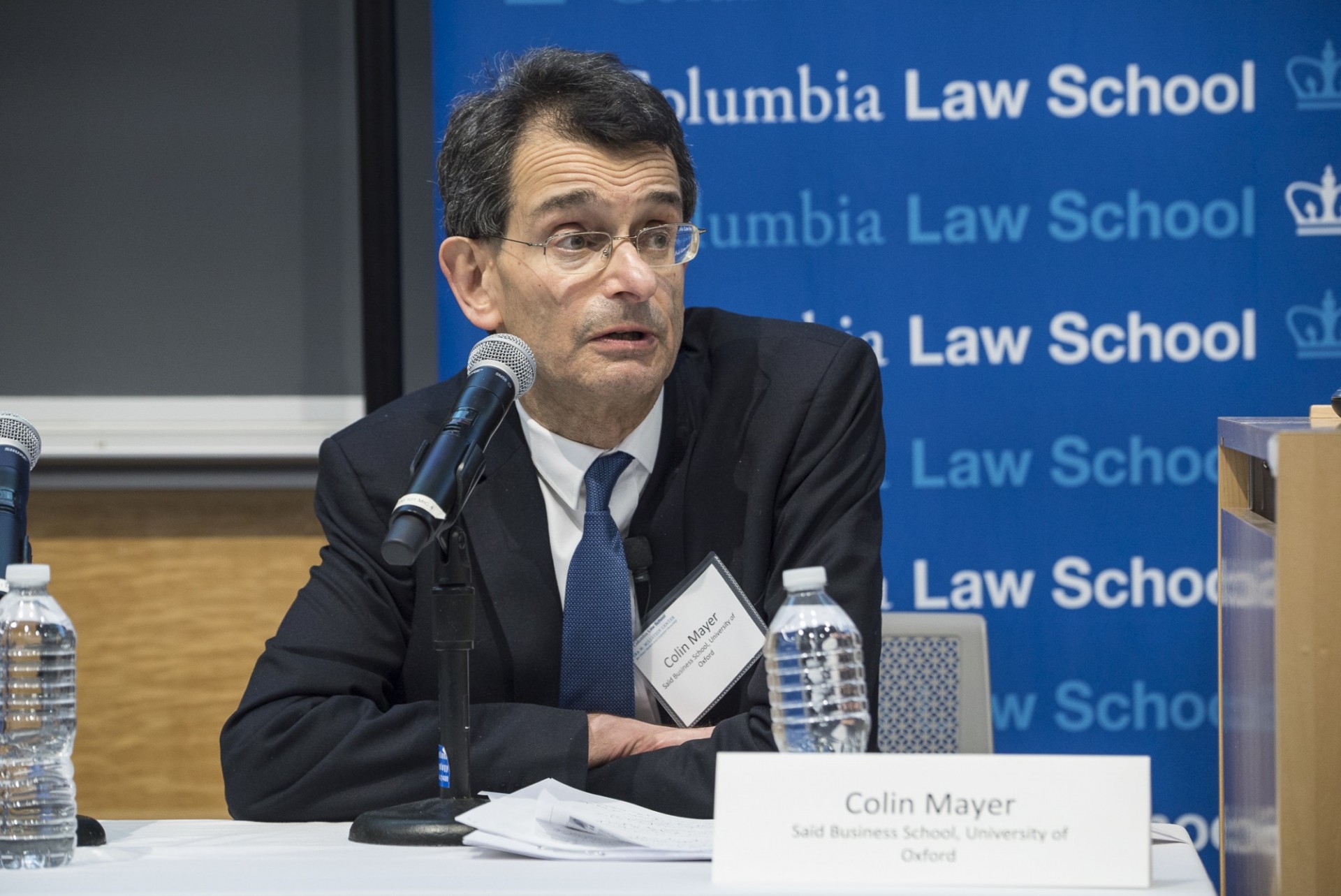
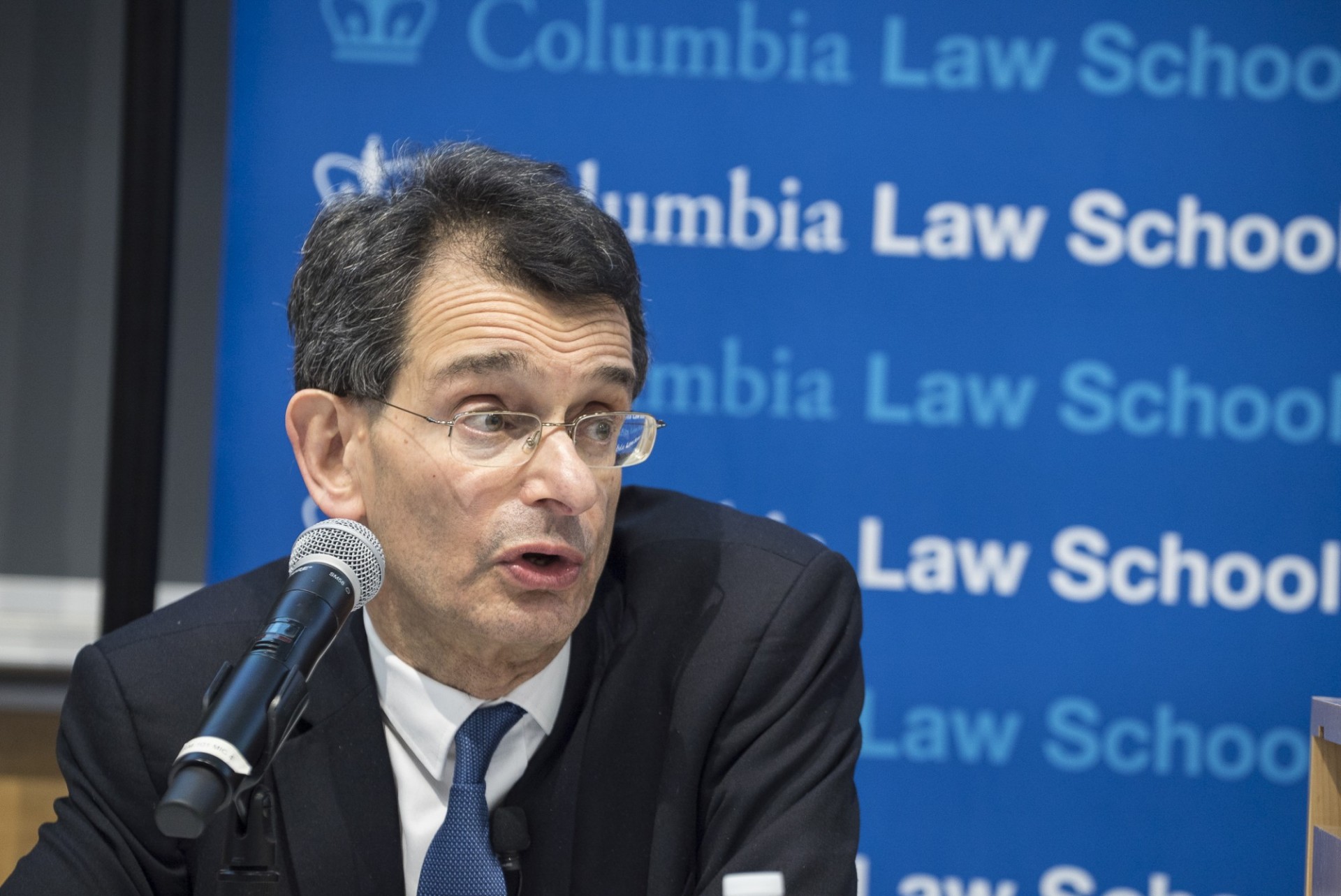
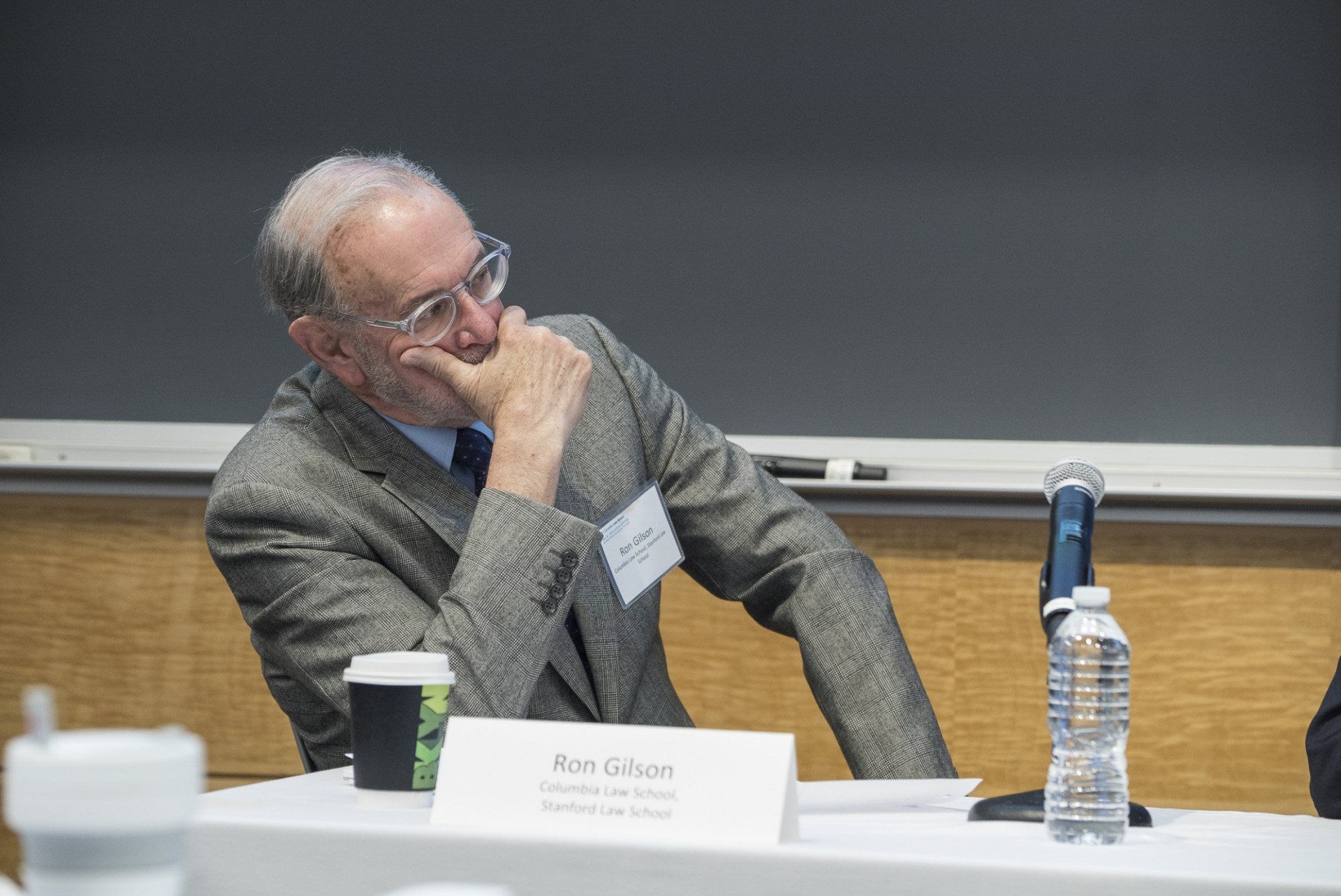
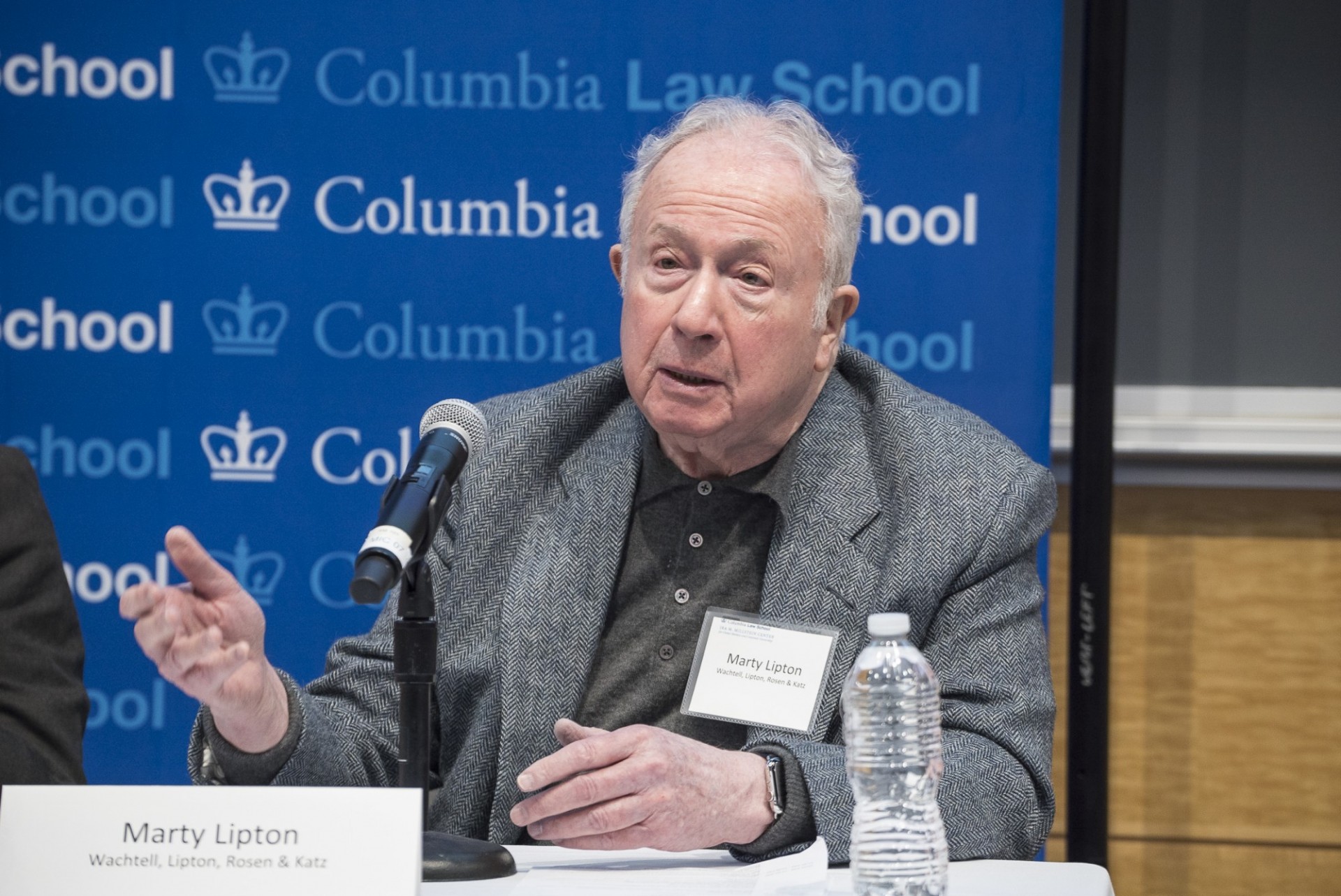

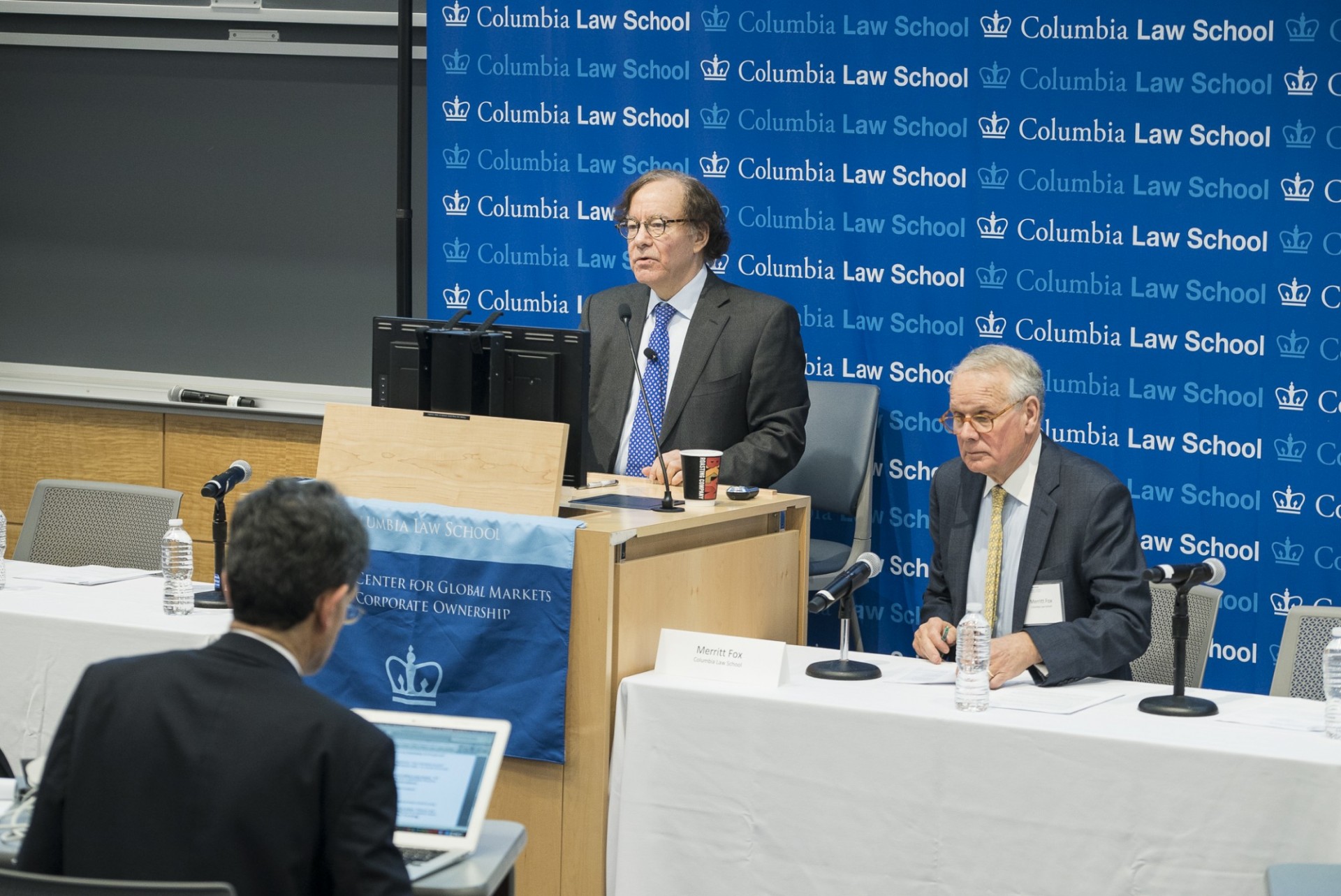
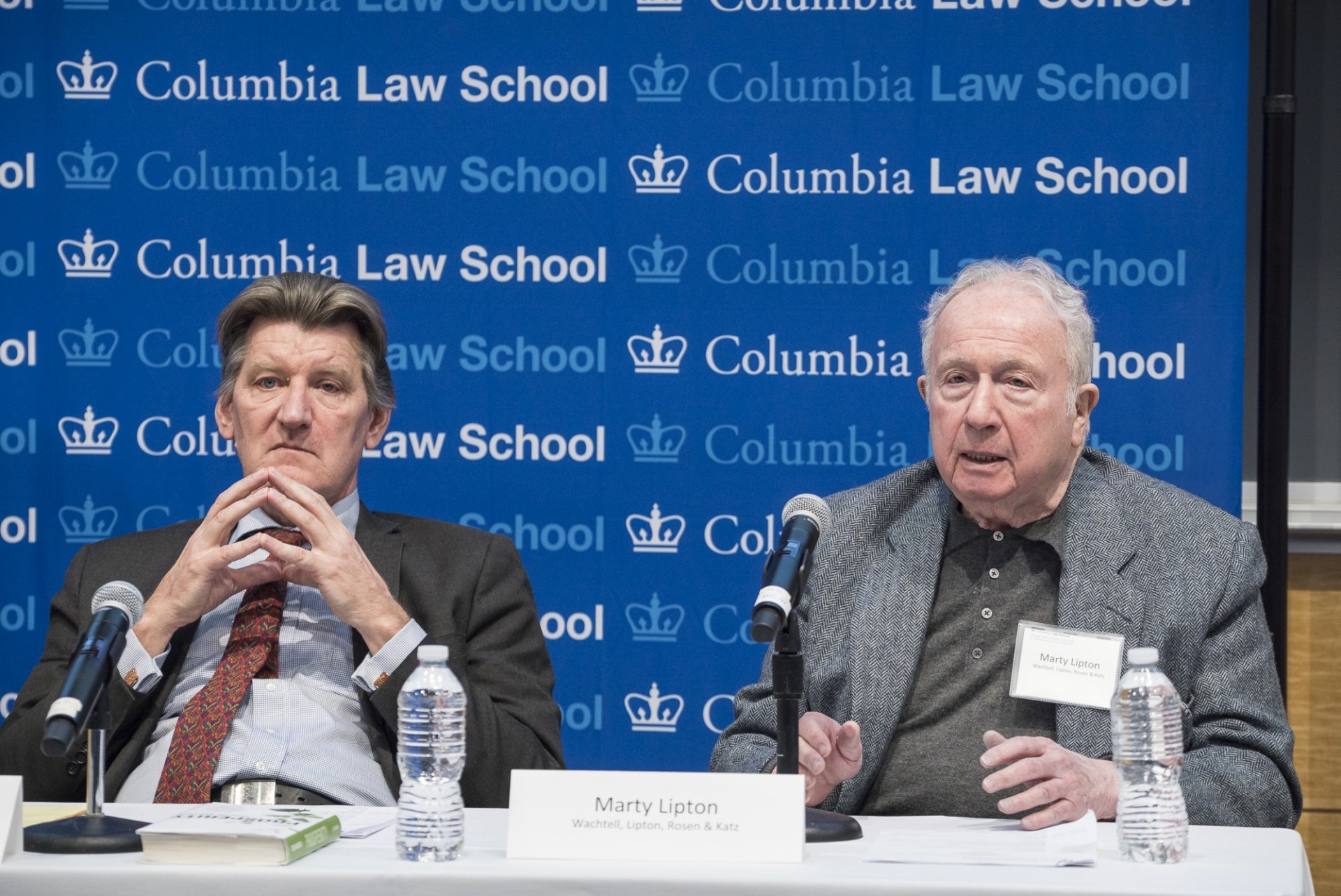
Conference Resources
Inaugural Conference
Corporate Governance “Counter-narratives”: On Corporate Purpose and Shareholder Value(s) - March 1, 2019
To begin exploring these counter-narratives, and to design a research agenda around them, the Millstein Center convened corporate governance experts at its March 1, 2019 conference, Corporate Governance “Counter-narratives”: On Corporate Purpose and Shareholder Value(s), to discuss and debate prominent “counter-narratives” being put forth. The “counter-narrators” included Saïd Business School Professor Colin Mayer, who recently organized a British Academy project on The Future of the Corporation and finished a book called Prosperity: Better Business Makes the Greater Good, and Chief Justice Leo Strine of the Delaware Supreme Court, who wrote a series of articles describing the reality of shareholder power and calling for better use of this power (“investing for the long-term”). SEC Commissioner Robert Jackson, a former Columbia Law Professor and former Executive Director of the Millstein Center, delivered the keynote address.
See here for additional details. Full recordings of the day’s sessions are available here.
Counter-Narratives Roundtables
Does (and Should) Delaware Law Allow “Long Term” “Stakeholder Governance”? - May 16, 2019
The Millstein Center held the first in a series of roundtables following our March 1 conference on May 16, 2019 in partnership with Gibson Dunn. A small group of practitioners and academics convened to explore whether and to what extent Delaware law does (and should) allow for “long-term stakeholder governance” (as an alternative to the traditional shareholder primacy paradigm).
Discussions of long-termism and stakeholder governance dominate today’s corporate governance discussions. Both doctrines are held up as the solutions to the major problems facing our corporations and society at large. Debate continues, however, as to whether Delaware law and the business judgment rule allow boards of directors to make decisions on any basis outside of creating immediate shareholder value. How much freedom does the law give to boards to consider whether benefits to non-shareholder constituencies may ultimately serve as investments in downstream shareholder value? What kind of record needs to be made for a board to conclude that taking an action having a more immediate positive impact on non-shareholder constituencies creates long-term value for shareholders? Can the “shareholder” include those holding through large index funds like Vanguard or Fidelity? If this type of stakeholder decision-making is adopted in the name of maximizing long-term shareholder value, do boards have too much wiggle room to pursue “non-Revlon” M&A transactions and long-term strategies that destroy shareholder value without being held accountable.
The roundtable discussion explored all of these questions, and the insights that arose will help to shape the direction of the Millstein Center’s Counter-Narratives Project going forward.
Roundtable on Corporate Purpose with Colin Mayer - October 17, 2019 | New York, NY
The Millstein Center hosted a roundtable with Professor Colin Mayer, of the University of Oxford’s Saïd Business School, to explore his work with the British Academy’s Future of the Corporation Programme on corporate purpose and how business can be reconceptualized to meet the needs of the 21st century.
A small group of business leaders, academics, regulators and practitioners workshopped concrete ideas and policy recommendations for how to adapt the Programme’s “Principles to Promote the Corporation of the Future” to the U.S. context.
The group focused primarily on the following Principles:
- Corporate law should be reformulated around corporate purpose instead of shareholder rights.
- Regulation should require companies that perform public functions to have corporate purposes that reflect their public roles.
- Ownership relates to the specification of corporate constitutions, implementation of corporate purposes, and the corporate values associated with them.
- Corporate governance is not about aligning managerial interests with those of shareholder interests but with the delivery of a company’s purpose.
Other Events
The Future of the Corporation with Sir Paul Collier and Colin Mayer - October 16, 2019 | New York, NY
The Millstein Center hosted a discussion on the Future of Capitalism, where we explored how capitalism and business might change to work better for society. Two of the leading scholars in this area, Oxford business professor Colin Mayer and Sir Paul Collier, a professor of economics and public policy at Oxford, shared insights from their new books, Prosperity: Better Business Makes the Greater Good and The Future of Capitalism: Facing The New Anxieties.
Following Professor Collier and Professor Mayer’s presentations, they were joined on a panel with Alan Schwartz, Executive Chairman of Guggenheim Partners, and Steve Pearlstein, business and economics columnist for The Washington Post, to provide commentary and facilitate discussion. The Millstein Center's Executive Director, Kristin Bresnahan, moderated.
An edited transcript of the event, available here, was published in the Spring 2020 issue of the Journal of Applied Corporate Finance.
The End of Shareholder Primacy? - October 30, 2019 | New York, NY
“Shareholder primacy” has long been at the center of corporate governance, standing for the proposition that the primary responsibility of corporations is to increase value for the company and its shareholders. Recently, the Business Roundtable—an association of leading US CEOs—released a declaration that suggested a different corporate purpose, framed in terms of the need to deliver value to all stakeholders and to drive sustainable growth, a move away from shareholder primacy.
Will this declaration affect the operation and governance of US businesses? Is the statement a sign of a true commitment, or merely empty rhetoric fashioned to respond to the political moment?
Jeffrey N. Gordon, Richard Paul Richman Professor of Law at Columbia Law School, Co-Director of the Richard Paul Richman Center for Business, Law, and Public Policy and Co-Director of the Ira M. Millstein Center for Global Markets and Corporate Ownership, and Edward Rock, Martin Lipton Professor of Law at NYU and Director of the Institute for Corporate Governance and Finance, discussed these issues on a panel moderated by Wei Jiang, Arthur F. Burns Professor of Free and Competitive Enterprise at Columbia Business School.
This event was co-sponsored alongside the Richard Paul Richman Center for Business, Law, and Public Policy.
Rethinking Stewardship Conference - October 23, 2020, 9:30am - 3:45pm ET | Webinar
On October 23, the Millstein Center, ECGI, and Columbia Law School's Center for Law and Economic Studies will co-host a virtual conference on "Rethinking Stewardship."
The reconcentration of share ownership into the hands of a small number of institutional investors holding broadly diversified portfolios has led to calls for adoption of a particular corporate governance stance by these investors, “stewardship.” Indeed, many jurisdictions, following the lead of the UK, have adopted stewardship codes into their regulatory framework. “Stewardship” has generally been taken to mean engagement with portfolio companies in view of long term shareholder interests, though some have argued for a broader conception of stewardship obligations. Since companies are likely to be responsive to the convictions of their largest shareholders, one especially important question is how particular models of stewardship will affect the way that public companies frame and address the ESG issues now urged upon them.
The goal of the conference is to examine this conception of stewardship for its “fit” with current practices of institutional investors, the “products” that asset managers offer to beneficial owners, and the diverse patterns of ownership and economic development throughout the world. In short, the goal is to “Re-Think Stewardship.”
You can register here.
For more information, see:
Global Investor-Director Survey on Climate Risk Management
In recent years, a growing chorus of commentators and policy makers have begun to question anew the role and purpose of the corporation, with a level of scrutiny not seen in over a generation. As changes in the global climate continue to impact business operations, governance, and organizational management around the world, climate change is an important driver of these "counter-narratives" to the traditional shareholder primacy model of corporate governance. Boards of directors are searching for ways to account for these changes as they help guide their organizations, and investors are increasingly concerned about how these changes might impact their portfolios.
Recognizing these trends, the Millstein Center, in partnership with LeaderXXchange, conducted a global survey of investors and directors to understand how—if at all—investors and board directors incorporate climate-related issues in their investment decision-making and their oversight responsibilities, respectively.
One of our goals in conducting the survey was to understand and assess how ESG issues impact investment and boardroom decisions. The survey collected data on a broad range of topics, including respondents’ views on:
- materiality of climate change issues,
- extent of training on climate change issues,
- disclosure of climate risks,
- climate risk management and board oversight, and
- engagement and proxy voting on climate-related issues.
More than 60% of directors and 70% of investors surveyed indicated that climate risk is already impacting their business today. Other key findings reveal not only that both groups find ESG issues to be material, but that there are certain demographic and regional differences within each group’s views. You can find the full report on our survey findings here and an executive summary of the findings here.
Pension Fund Coalition for Inclusive Capitalism
The Pension Fund Coalition is an initiative of the Millstein Center and the Coalition for Inclusive Capitalism. Working alongside our advisors, we bring together pension fund managers who are committed to investing in sustainable businesses that will provide long-term value for beneficiaries in the face of evolving global challenges, and who wish to work together to ensure that asset managers are deploying their capital to invest in sustainable companies that effectively address and disclose material ESG-related investment risks and opportunities.
The members of the Pension Fund Coalition collaborated to generate customizable contract language establishing minimum ESG guidelines that can be used as a guide for structuring ESG provisions in investment agreements between asset owners and active asset managers in public equities. This model contract language is designed for ease of use and can be tailored to asset owners' ESG and long-term investment priorities. The model language and additional resources can be found here.
The Coalition is co-chaired by Theresa Whitmarsh, former Executive Director of the Washington State Investment Board and Millstein Center Advisory Board Co-Chair, and Hiro Mizuno, former Executive Managing Director of Japan’s Government Pension Investment Fund.
